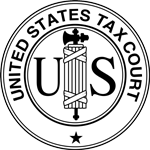- Free Consultation: (772) 418-0949 Tap Here to Call Us
What To Know About Joint Tax Liability Relief

When dealing with a tax debt primarily associated with one’s spouse, a taxpayer may qualify for one of these two types of relief. Although these have similar-sounding names, they are entirely different. Innocent Spouse Relief primarily arises when there are erroneous item occurrences on jointly filed return filings. Injured Spouse Relief deals with situations where a tax refund or credit is unfairly applied to the other spouse’s tax obligation. Before we discuss either of these in greater depth, let’s briefly go over how tax liability is assigned during spousal death or divorce.
Are Unpaid Taxes My Responsibility if My Spouse Dies?
Having a spouse pass away is an extreme hardship. Compounding this hardship would be if you were saddled with unpaid back taxes, which now became your responsibility. The burden of responsibility is based on the filing status of the returns where the tax debt arose. In most cases for the death of a spouse, if the filing status were married filed jointly on returns with tax balances still owed, the surviving spouse would be held liable.
Who Is Responsible for IRS Debt in a Divorce?
The filing status determines the outcome in this situation as well. If you and your spouse jointly filed your tax returns when married, both of you will be liable to the IRS. They can collect 100% of the debt (tax, penalties, and interest) from either spouse. Regardless of what custody orders a divorce court may issue, your federal tax status is governed by federal law, which, in this case, will supersede a state or county court order.
There are times when the non-filing spouse does not know what the other’s spouse’s mistakes or omissions were on the jointly filed return or is even aware of the other spouse’s current financial activities. When this occurs, the unknowing spouse may have grounds to seek one of the forms of innocent spouse relief.
What is Innocent Spouse Relief?
Innocent Spouse Relief is one of the three types of Relief from Joint Tax Liability. Equitable Spouse Relief and Separation of Liability Relief are the other two. Innocent Spouse Relief is where the joint return has understated tax liability due to either improperly reported or omitted items attributable to a taxpayer’s spouse or former spouse of which the taxpayer did not know or have reason to know. You can be relieved of responsibility for paying tax, interest, and penalties by requesting innocent spouse relief. If successful, generally, the tax, interest, and penalties that qualify for relief can only be collected from your spouse (or former spouse).
How Do I Qualify for Innocent Spouse Relief?
You must meet the following conditions to qualify for innocent spouse relief.
1. You filed a joint return.
2. There is an understated tax on the return due to incorrect items of your spouse (or former spouse).
3. You can show that when you signed the joint return, you did not know and had no reason to know that the understated tax existed (or the extent to which the understated tax existed). You were not aware of any unreported income or incorrect deductions.
4. The tax return had items listed quite differently than in previous years and is not indicative of a pattern.
5. Considering all the facts and circumstances, it would be unfair to hold you liable for the understated tax.
The taxpayer must request relief within two years after the date on which the IRS begins collection activity.
If the IRS determines that you meet these conditions, you will qualify for the release of the entire or portion of the liability. Your spouse then assumes liability for the amount you are released from.
As reflected earlier, Innocent Spouse Relief is one of three forms of Joint Spouse Relief. Let’s go over the two forms: Separation of Liability relief and Equitable Relief.
Separation of Liability Relief:
The requirements are the same: one spouse has to be guilty of doing something the other spouse was unaware of, and to qualify, you must have met one of the following requirements at the time you requested relief.
- You’re divorced or legally separated from the spouse
- You’re widowed
- From the date you’re requesting relief at any time 12 months before that date, you weren’t a member of the same household as the spouse with whom you filed the joint return.
Equitable Relief:
If you cannot qualify for innocent spouse relief or separation of liability relief, you may still file for “equitable relief.” The IRS will review your facts and circumstances and determine whether to hold you liable for any deficit or underpayment of tax. Unlike the other two forms of relief, equitable relief may be provided for an underpaid tax. In addition, in some cases, you may be eligible for relief even if you had known about the understatement or underpaid tax but, due to fear of retaliation by your spouse, elected not to challenge.
Innocent spouse relief or separation of liability must be requested no later than two years after the IRS first set out to collect the tax from you. Equitable relief must be requested when the IRS can collect your tax. Lastly, whenever a spouse requests innocent spouse relief, the IRS will contact the other spouse.
What Is Injured Spouse Relief?
Injured Spouse Relief is a different type of relief sought than the three other types of Joint Return Relief (Innocent Spouse Relief, Separation of Liability Relief, and Equitable Spouse Relief). This relief jointly filed returns where your refund is being offset due to prior activities/debts incurred by your spouse, and you were not responsible for them. Ordinarily, on a jointly filed return, there are joint and several liabilities for any tax, interest, and penalties meaning the IRS can collect these amounts from you or your spouse (or former spouse). However, if you can demonstrate that had it not been your spouse’s prior activities, you would be entitled to a portion of the refund, this relief should most likely be sought.
To be considered an injured spouse, you must meet all the following criteria:
- Have filed a joint return
- Have paid federal income tax or claimed a refundable tax credit
- All or part of the taxpayer’s refund was, or is expected to be, applied to their spouse’s past financial obligations and
- Not being responsible for the debt
If you believe you are entitled to a portion of the refund on a joint return, you can file Form 8379, Injured Spouse Allocation.
How Do I request Innocent Spouse Relief from the IRS?

To request innocent spouse relief from the IRS, you can complete the IRS Form 8857 or prepare a written statement which should contain the same information and detail as that you would disclose in the form 8857, and mail it to one of the following addresses:
Internal Revenue Service
P.O. Box 120053
Covington, KY 41012
Alternatively, you can fax the form and attachments to the IRS at 855-233-8558.
For Additional Information, read the following blog:
Get Help Applying for Joint Liability Relief or Injured Spouse Relief with Trusted Representation at your side!

Joint Spouse Relief and Injured Spouse Relief plans are complicated to set up. Harmon Tax Resolution, LLC can assist you throughout the process. At Harmon Tax Resolution, LLC, an experienced multi-licensed tax attorney-CPA-IRS E.A. will ensure you get the complete representation you deserve. For a Free Consultation, Call Today @ 772-418-0949 or complete the online inquiry form so that you can sleep well tonight.
Let us help you put your tax worries behind you so you can move on to life’s better things! Make the Call Today so that you steer your path tomorrow!











